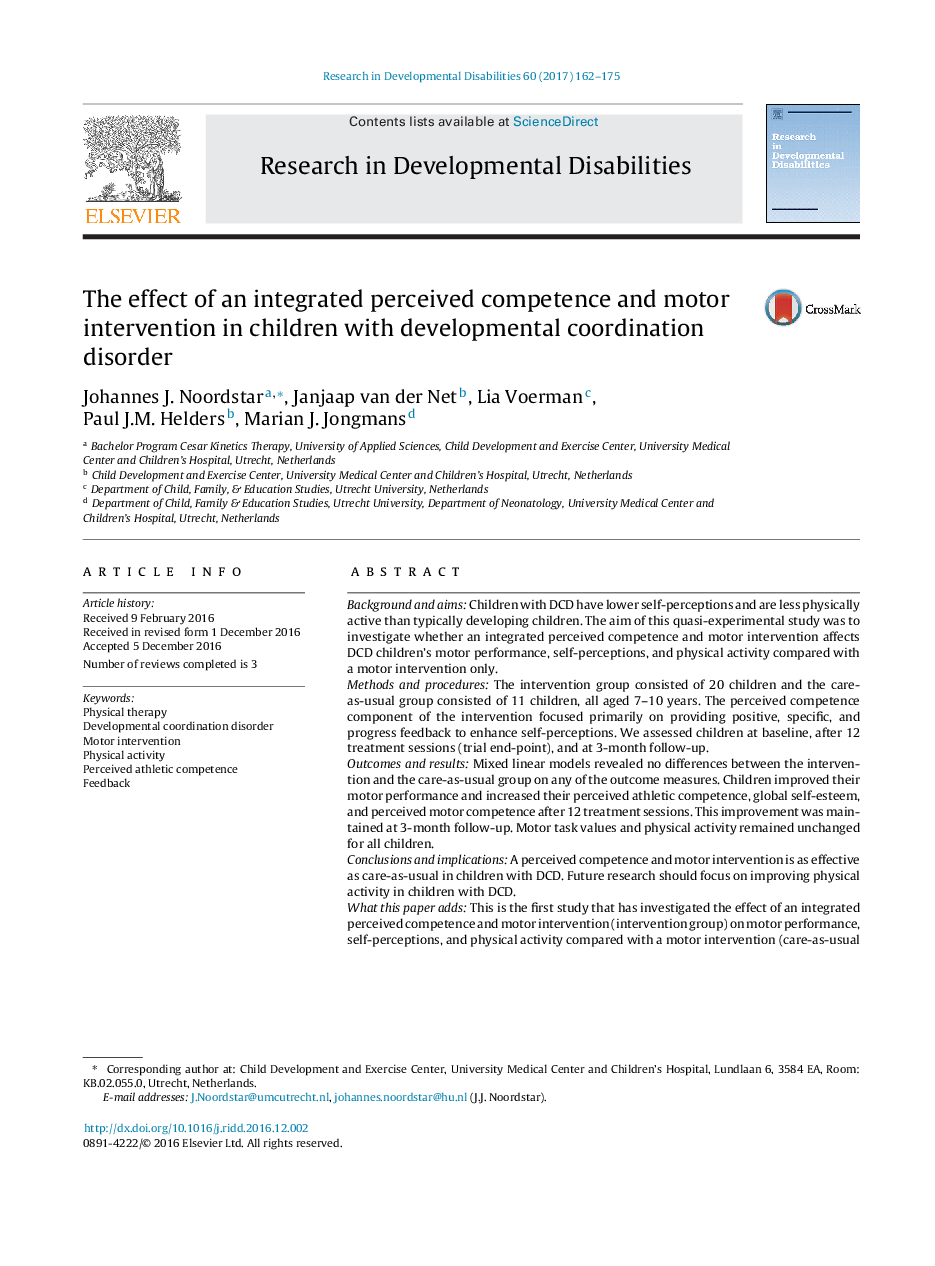ترجمه فارسی عنوان مقاله
تأثیر یکپارچگی ادراک شده و مداخله حرکتی در کودکان مبتلا به اختلال در هماهنگی رشد
عنوان انگلیسی
The effect of an integrated perceived competence and motor intervention in children with developmental coordination disorder
| کد مقاله | سال انتشار | تعداد صفحات مقاله انگلیسی |
|---|---|---|
| 146613 | 2017 | 14 صفحه PDF |
منبع

Publisher : Elsevier - Science Direct (الزویر - ساینس دایرکت)
Journal : Research in Developmental Disabilities, Volume 60, January 2017, Pages 162-175
ترجمه کلمات کلیدی
فیزیوتراپی، اختلال در هماهنگی رشد، مداخله موتور، فعالیت بدنی، شایستگی ورزشی درک شده، بازخورد،
کلمات کلیدی انگلیسی
Physical therapy; Developmental coordination disorder; Motor intervention; Physical activity; Perceived athletic competence; Feedback;

